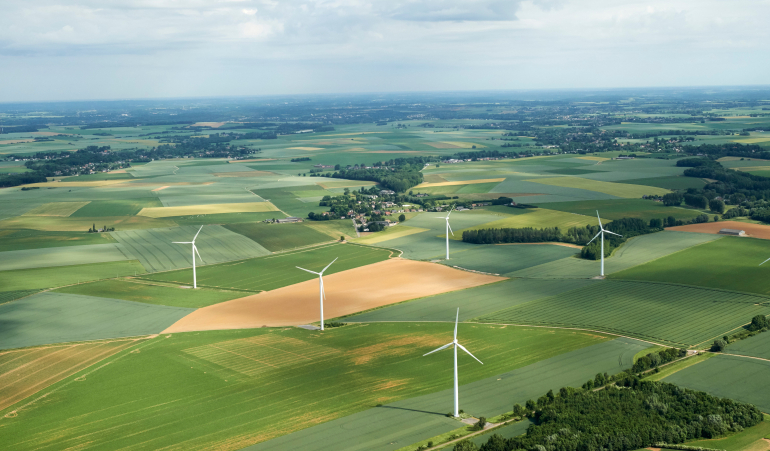
From 20 to 22 October 2025, key players in biocontrol gathered in Basel, Switzerland, for the ABIM trade fair, an opportunity to showcase Wallonia’s growing ecosystem of sustainable agriculture, a sector that continues to expand and innovate.
According to L’Echo (July 2025), the global agricultural biotechnology market is expected to grow by 8.7% per year through 2032, reaching more than USD 76 billion. It’s an opportunity that Walloon companies intend to seize. With 44% of its territory dedicated to agriculture, Wallonia offers ideal conditions for testing innovative solutions and benefits from a strong network of R&D centers, universities, and specialized schools, as well as a skilled workforce in agriculture and food production.
Since June 2025, Wallonia and Wagralim (the region’s competitiveness cluster) have also been coordinating the European Network “Biosolutions for Sustainable Agriculture”, which brings together 10 innovation hubs across 7 countries. This initiative, developed under the European Commission’s Smart Specialisation Strategy for Agri-Food, promotes biocontrol, biostimulants, and biofertilizers in alignment with the Green Deal, the Farm to Fork strategy, and the Mission for Soil Health.
The programme adopts a “One Health” approach, linking plant, animal, and human health to ensure both ecological resilience and economic competitiveness.
Biocontrol, Biostimulants, and Biofertilisers — What Are They?
Biocontrol refers to plant protection products that serve as alternatives to petrochemical-based pesticides.
Biostimulants are a new generation of bio-based inputs that enhance plant growth and vitality.
Biocontrol products have wide-ranging applications — including seed coating, foliar spraying, and soil amendment.
In plant defense, these include biopesticides, biofungicides, bioherbicides, plant defense elicitors, and solutions addressing abiotic stress.
For growth and resilience, biofertilisers and biostimulants help boost germination, growth rate, resistance to pathogens, and overall plant vigor.
Walloon companies at ABIM 2025
Nine companies were present at the AWEX stand, while four participated individually: ARMOSA, FYTEKO, FYTOFEND, and KITOZYME.
- Agricells: is dedicated to sustainable agriculture. Its goal is to promote a healthier and more sustainable food system by developing and marketing affordable, accessible biostimulants and microorganism-based biocontrol solutions that reduce chemical inputs.
- Apeo: APEO’s mission is to transform agriculture by promoting sustainable gardening and farming practices through science-based bioherbicides, biofungicides, and biocides.
- Artechno: specializes in the production of beneficial microorganisms for human health, animal nutrition, hygiene, as well as agronomic and environmental applications.
- BiocSol: delivers affordable, field-effective biopesticides that respect the environment and biodiversity, paving the way for more sustainable agriculture.
- Medinbio: develops pesticide-free plant production systems in partnership with agro-industrial players, based on its innovative Systemic® approach.
- Minagro: develops bio-based co-formulants for the agrochemical industry. Integrated into pesticides and fertilizers, these ingredients reduce toxicity and improve the performance of products used in organic farming.
Rhizome Network: centralized operator conducting and managing GEP experimental trials across Europe and worldwide, ensuring regulatory and technical excellence. - Redebel Regulatory Affairs (RRA): provides a full range of regulatory services in the EU and abroad, covering active substances and formulations under regulations
- Weexa Biologicals: is active in microbial fermentation and plant extract formulation, WeeXa develops bio-based agricultural products designed to support sustainable farming.
Source : Isabelle Anneet (AWEX),Wallonia.be





